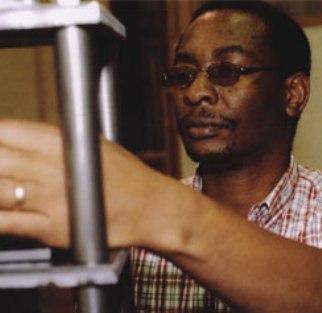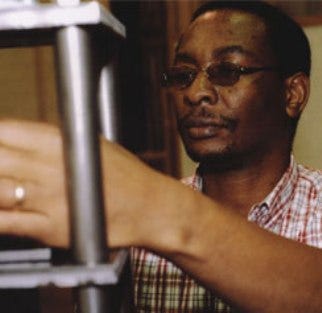January 30, 2014


Joseph Mpagalile
Just a few weeks ago, the UN Environment Programme (UNEP), the Food and Agriculture Organization (FAO) and other partners launched the Think.Eat.Save. Reduce Your Foodprint campaign in support of the SAVE FOOD Initiative to reduce food loss and waste along the entire chain of food production and consumption. Packaging plays a big role in this global strategy and Joseph Mpagalile of the UN's FAO will be on hand at Sustainability in Packaging 2013 to address Food Waste and Food Packaging: Extent, Causes and Solutions, and the Link with Developing Countries. Joseph shared his insights into this program, FAO's recent efforts and why this is such an important subject for the packaging industry in a recent interview with us.
Can you share with us the latest efforts of the Save Food program by FAO?
The Global Initiative on Food Loss and Waste Reduction - SAVE FOOD - is founded and led by FAO and Messe Düsseldorf (trade fair organizer of Interpack, for the food packaging and process industry). It rests on four main pillars:
1.Awareness raising on the impact of, and solutions for food loss and waste. This will be achieved by a global communication and media campaign, the dissemination of Save Food programme findings and results, and the organization of Regional SAVE FOOD Congresses. Important goals are increased knowledge and changed behaviour of actors and consumers in the food chains, and promotion of the SAVE FOOD initiative to attract partners.
Latest Effort:
Save Food has linked with the UN Environment Programme to implement the campaign on food waste. The launch will be on 22 January 2013.
Save Food organized a side event of the FAO Council in on 4 December 2012 at FAO Headquarters whereby key partners gathered to present and discuss ways to reduce and reuse food waste.
2.Collaboration and coordination of world-wide initiatives on food loss and waste reduction. SAVE FOOD is establishing a global partnership of public and private sector organizations and companies that are active in the fight against food loss and waste. In order to develop, plan and implement interventions and use resources most efficiently, it is essential that all these initiatives are being coordinated well, so that everybody knows what is happening world-wide, that information, problems and solutions can be shared, and that methodologies, strategies and approaches will be harmonised.
Latest Effort:
Save Food has established a network of public and private partners in an interactive database. See http://www.fao.org/save-food/get-involved/en/
3.Policy, strategy and programme development for food loss and waste reduction. This includes a series of field studies on a national-regional basis, combining a food chain approach to loss assessments with cost-benefit analyses to determine which food loss reduction interventions provide the best returns on investment. Further, the Initiative undertakes studies to the socio-economic impacts of food loss and waste, the political and regulatory framework that affects food loss and waste, and the special role of food packaging in developing countries.
Latest Effort:
- Save Food has nearly completed the field case studies in Kenya, involving food supply chains of maize, banana, fish and milk.
- FAO - Rural Infrastructure and Agro-Industries Division is a partner in the FUSIONS (Food Use for Social Innovation by Optimising Waste Prevention Strategies) project. The project runs for 4 years and is funded by the European Commission Framework Programme 7. FUSIONS is a project working towards achieving a more resource efficient Europe by significantly reducing food losses and waste.
4.Support to investment programmes and projects, implemented by private and public sectors. This includes technical and managerial support for, as well as capacity building (training) of food supply chain actors and organizations involved in food loss and waste reduction, either at the food subsector level or policy level.
Latest Effort:
FAO is implementing projects to support the reduction of food losses in Africa by policy development and capacity building, and a project on food packaging in Southeast Asia.
For more from Dr. Mpagalile's Q&A, click here.
Source: Sustainability in Packaging
.
You May Also Like


